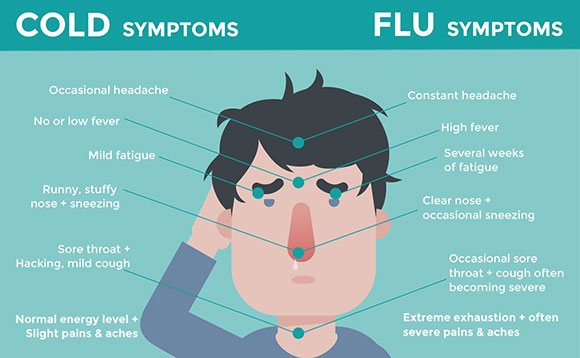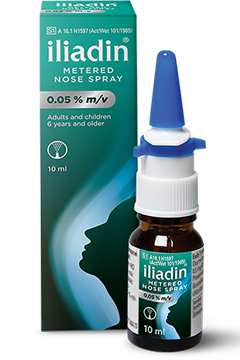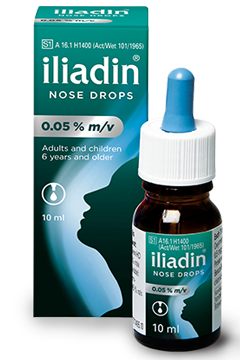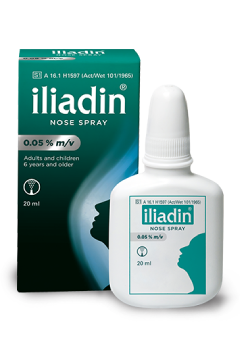CLASSIC
COLD VERSUS FLU: SAME BUT DIFFERENT?
_
The two words are often used interchangeably, but the terms “cold” and “flu” have two very different meanings. Although some symptoms of a cold and the flu may be similar, the level of their severity differs. And the two should be treated differently for a speedy recovery.
It’s another day in the office. You didn’t sleep well throughout the night and had a tough time getting up in the morning. During the day, you begin to feel sluggish and your muscles start to ache. You’re suddenly cold and sneezing more often. You know that you’re feeling under the weather, but what exactly do you have? A cold? The flu? An illness is going around in the team, and everyone is talking about both. Are they the same thing? Are they different?
Know what you have
To choose the most effective treatment for your illness, it’s important to know if you have the common cold or the flu. The common cold is a mild respiratory illness compared to the flu. The symptoms that come along with it last for a few days and can be easily treated with over-the-counter nasal sprays and home remedies.
The flu, however, is more serious. You can suffer from it for up to weeks. If not treated properly, it can lead to health problems like pneumonia, or make existing conditions, such as asthma or heart disease, even worse. The flu is an infectious disease caused by the influenza virus, which is more dangerous than the virus strains of the common cold.
You can tell the difference between the two by taking a closer look at their symptoms:

Know how to treat what you have
First of all, the bad news: there’s no cure for the common cold or flu. But we have good news for you too: you can treat the symptoms of a cold or the flu to relieve your suffering. There are many home remedies that have proven to be effective, especially for clearing up a blocked nose. These include drinking plenty of warm liquids, getting lots of rest and breathing in steam.
Know if you need to see a doctor
If your symptoms persist for more than a week, without showing any signs of getting better, you might just have a bacterial infection. In this case, you might need antibiotics. Or you could have developed an allergy or sinusitis. Please consult your general practitioner in this case.
Sources:
http://www.webmd.com/cold-and-flu/cold-guide/flu-cold-symptoms
https://en.wikipedia.org/wiki/Influenza
http://www.commoncold.org/treatment.htm
_
DID YOU KNOW?
The term “influenza” is originally from Italian and means “influence”. It was coined back in the middle of the 18th century at a time when people thought the disease was due to negative astrological influences.







